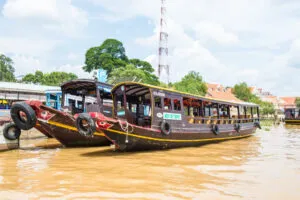A Primer On Healthcare In Vietnam For Expats

With a population just north of 100 million and a median age of only 32.8 years as of 2023, Vietnam is in the midst of rapid economic growth rarely seen in recent times. Numerous industries are booming, and the government is sparing no effort to improve the nation’s infrastructure and education system, to further cement its standing on the world stage and attractiveness to foreign investors.
In this article, our friends at Pacific Prime give a primer on the healthcare system of Vietnam. They’ll also give tips on what expats can do to ensure their health will be in good hands during their time in Vietnam.
The healthcare system in Vietnam
Most healthcare services in Vietnam are provided by the public system. Basic healthcare services such as vaccinations, health education, and treatment of common illnesses are offered at the primary level. District hospitals provide more specialised care and diagnostic services, while highly specialised medical care and advanced diagnostic services and treatments are available in central-level hospitals.
Public healthcare is heavily subsidised by the government and is provided free of charge or accessible at a symbolic cost for the most part. However, despite recent improvements, the quality of care still leaves a lot to be desired and varies considerably between healthcare facilities in urban and rural areas. The public system also faces several challenges, from insufficient medical personnel, inadequate infrastructure, to limited resources.
In recent times, and although their services are still not generally available in more rural areas, private healthcare providers are playing an increasingly prominent role in Vietnam. Many private clinics and hospitals use state-of-the-art equipment and offer top-notch treatments. However, as one can expect, private healthcare services also come with much steeper price tags.
General health advice for expats
To ensure your health is well taken care of while in Vietnam, you should:
- Get properly vaccinated before heading to Vietnam
- Drink only bottled or boiled water and steer clear of tap water
- Eat at reputable eateries and avoid eating undercooked or street food
- Use mosquito repellent and tent/net to prevent diseases such as dengue fever and malaria
- Always carry a first-aid kit containing band-aids, antiseptic, and other essentials
- Abstain from unprotected sex
- Wash hands properly and often
The emergency service number is 115 in Vietnam. It’s also important to realise that there is a problem of widespread sale of counterfeit or expired medicines across pharmacies in Vietnam, and for that reason you should only buy from pharmacies inside private hospitals.
In addition, for its higher quality of care, English-speaking staff, shorter wait times, enhanced convenience and comfort, better privacy, and more readily available specialised services, private healthcare represents the better option for expats in Vietnam and by far.
That’s why it’s crucial to get sufficient expat health or international health insurance: you don’t want to have to worry about whether you can afford pricey medical bills, when you should be focused on the recovery instead.
Contact Pacific Prime to explore your options today!
With 20+ years of experience in the insurance industry, Pacific Prime is unparalleled in their ability to help you find the plan that satisfies your needs and fits your budget. And you don’t have to pay an extra dime to have their unbiased advice and support compared to going straight to the insurer.
So, contact them for a FREE plan comparison today!